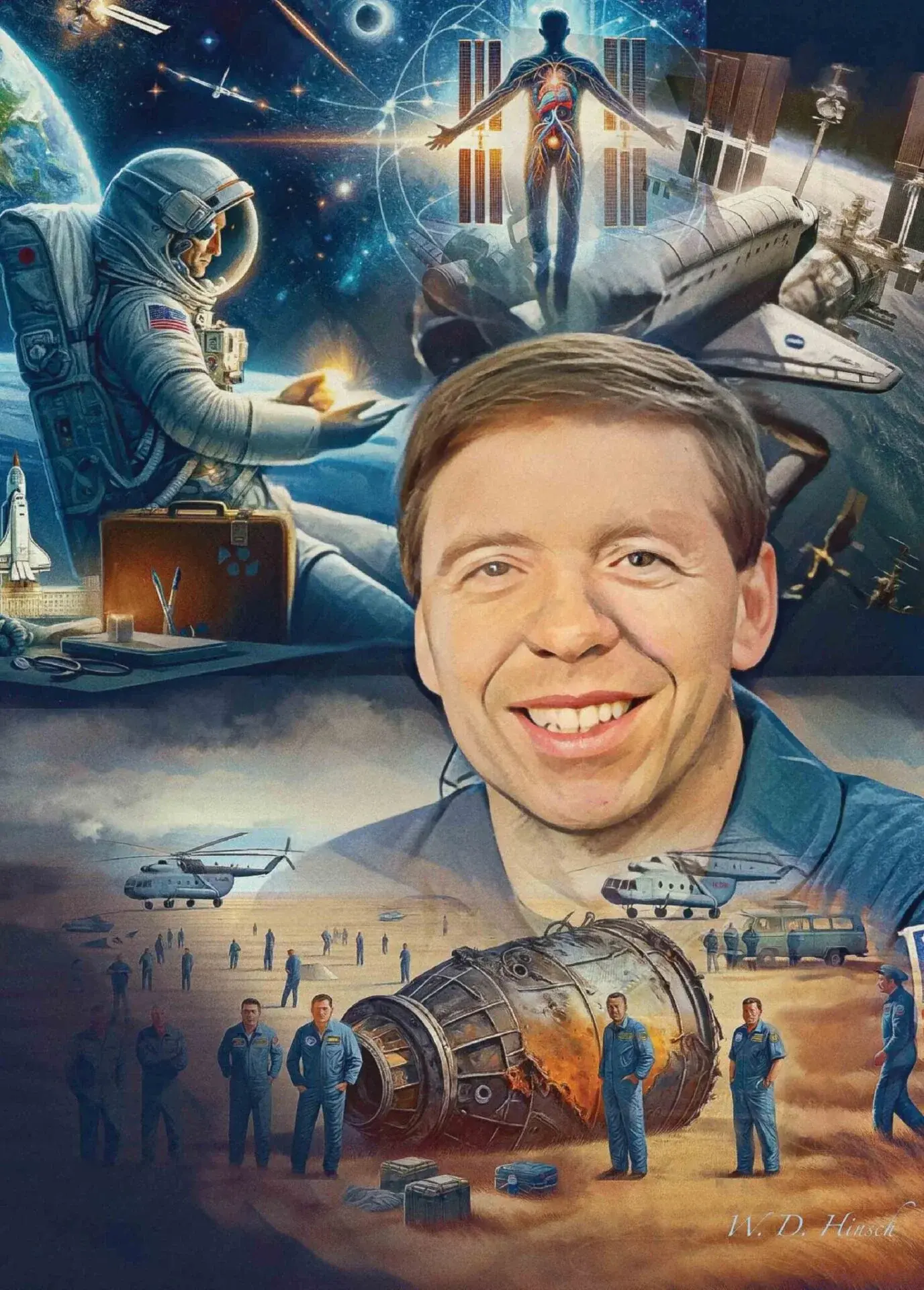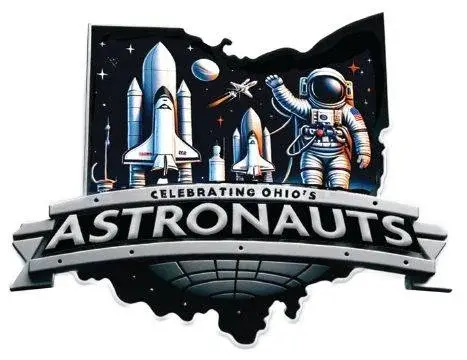
Dr. Michael Barratt
By William D.Hinsch
Dr. Michael Barratt
“Michael Foreman’s story, from the small town of Wadsworth,
to the vast expanse of space, is a journey of unwavering determination and inspiring achievement. Igniting his dream to become an astronaut at the
tender age of 8, Foreman charted a course that defied the conventional expectations of his family. His path, marked by repeated applications to NASA and an unrelenting commitment to his goal, culminated in a remarkable career that saw him leave his footprints in the cosmos.
Foreman’s tale is a vivid reminder of the power of perseverance and the importance of pursuing one’s passions, no matter the odds.
Through his spacewalks and work on the International Space Station, he not only contributed significantly to our understanding of space but also brought a touch of his Ohio roots to the stars. His story is a beacon
of hope and inspiration, encouraging all to dream big and to tirelessly chase those dreams.”
“Dr. Michael Barratt’s journey from an education in Ohio to the vast expanse of space encapsulates a life dedicated to the exploration and understanding of the human condition in extreme environments. Born on April 16, 1969, in Vancouver, Washington, Barratt’s early fascination with medicine and his passion for flight converged into a career that not only took him to the heavens but also made significant contributions to aerospace medicine.
After earning a Bachelor of Science in Zoology from the University of Washington and a medical degree from Northwestern University, Barratt’s path led him to Wright State University in Ohio. There, he specialized in aerospace medicine, a field that perfectly aligned with his love for flying and desire to push the boundaries of human knowledge. His training at Wright State, a program run jointly with NASA and Wright-Patterson Air Force Base, laid the foundation for his future endeavors in space medicine.

